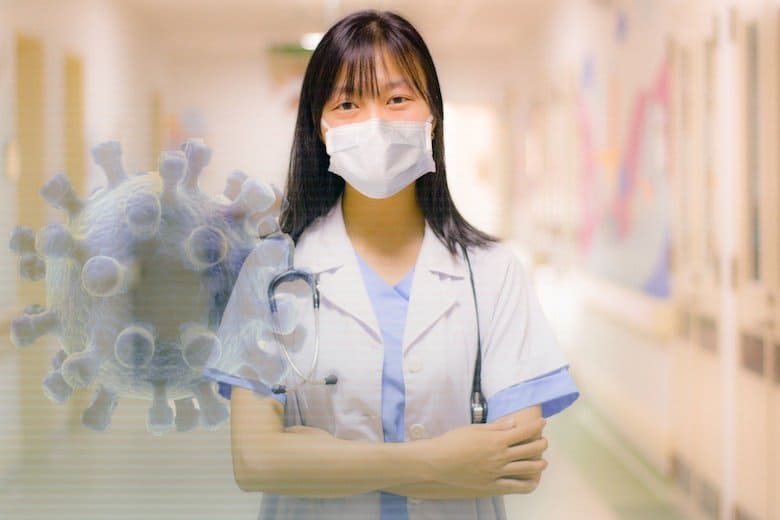
In 2026, these are the requirements to travel to Bangkok and Thailand:
- Travelers are no longer required to show proof of COVID-19 vaccination or negative test result to enter Thailand.
- Travel insurance is not required but highly recommended.
- The Thailand Pass is no longer required for all travelers.
- It's recommended that you stay at a "SHA" or "SHA+" hotel. These are certificates provided by the Tourism Authority of Thailand (TAT) to hotels that meet pandemic-level safety and health standards, inlcuding regular cleaning, availability of sanitizers, etc. The SHA+ certificate means that over 70% of the staff is fully vaccinated. These are the hotels with the SHA+ certification:
Aloft Bangkok Sukhumvit 11
Anantara Riverside Bangkok Resort
Anantara Siam Bangkok Hotel
The Athenee Hotel
Avani Plus Riverside Bangkok Hotel
Bangkok Marriott Hotel The Surawongse
Banyan Tree Bangkok
Centara Grand At Centralworld
Chillax Heritage
Conrad Hotel Bangkok
DoubleTree by Hilton Sukhumvit Bangkok
Dream Hotel Bangkok
Eastin Grand Hotel Sathorn
Grande Centre Point Sukhumvit 55
Grande Centre Point Terminal 21
Holiday Inn Express Bangkok Siam
Holiday Inn Express Bangkok Sukhumvit 11
Hyatt Regency Bangkok Sukhumvit
Ibis Styles Bangkok Sukhumvit Phra Khanong
The Landmark Bangkok
Le Meridien Hotel Bangkok
Le Siam Hotel
Lebua at State Tower
Mestyle Garage Hotel
Millennium Hilton Bangkok
Movenpick Hotel Sukhumvit 15
Novotel Bangkok on Siam Square
Novotel Suvarnabhumi Airport Hotel
Novotel Ibis styles Bangkok Sukhumvit 4
The Okura Prestige Bangkok
Pathumwan Princess Hotel
Renaissance Bangkok Ratchaprasong Hotel
Royal Orchid Sheraton Hotel and Towers
Shanghai Mansion Bangkok
Sheraton Grande Sukhumvit
Siam Kempinski Hotel Bangkok
The Sukhothai Bangkok
Tower Club at Lebua
W Bangkok Hotel
The Westin Grande Sukhumvit Bangkok
Evolution of the Covid-19 Pandemic in Thailand
Thailand had the first Covid-19 case outside China. The infectious disease was diagnosed on January 13, 2020, on a 61-year-old Chinese woman from Wuhan (where the virus originated), when she arrived at Bangkok’s Suvarnabhumi Airport. However, the number of cases remained relatively low over the following days, so a state of emergency was only declared on March 26, and a curfew was implemented on April 3rd (everyone had to stay indoors between 10pm and 4am), but it ended on June 15. Before these measures, the virus was mostly controlled by temperature and symptom screening at international airports.
The fatality rate in the country is quite low, at just 1%. The low rate of infections has been attributed to culture and the regular use of face masks. As the New York Times reported, no one knows what Thailand is doing right, but so far it's working. In January 2021, a study by the Lowy Institute concluded that Thailand's response to the Covid-19 pandemic was the fourth best in the world.
The first travel restrictions in Thailand took place on March 5, 2020, when travelers were subject to quarantine, and those arriving from “high-risk countries” were placed under observation. On March 19, it was announced that international arrivals from a number of countries would require medical certification and health insurance -- all travelers from China (including Hong Kong and Macau), South Korea, Italy and Iran, had to show medical certificates prior to boarding their flights and on arrival in Thailand, and then remain in quarantine for 14 days. People from other countries were also asked to stay indoors for 14 days if they showed any symptoms. All passenger flights were banned in the country between April 6 and 18. AirAsia, which operates a large number of domestic flights in Thailand, resumed domestic flights on April 29, and gradually added international destinations. However, most flights to and from Thailand remained suspended, although inbound international travel for business purposes was allowed to resume in July.
In September, the government approved a long-stay tourist visa, which allowed stays for 90 days. The first international tourists (from China) were welcomed in Phuket in October, marking Thailand’s gradual restart of the tourism sector. On December 17, the country eased travel restrictions for citizens from 56 countries. Plans to fully reopen were continuously delayed throughout 2021, until November 1st, when travelers from 46 countries or territories were allowed in Thailand without the need to quarantine.
Is it Safe to Travel to Bangkok and Thailand?
The risk for travelers is expected to remain moderate in Bangkok and everywhere else in the world, until a significant part of the global population is vaccinated against Covid-19. Everyone is advised to practice the universally recommended protective measures, such as wearing masks where required, social distancing (staying 6 feet or about 2 meters away from other people) and practicing high personal hygiene -- regularly wash your hands with soap and water (or with an alcohol-based sanitizer), especially after sneezing or coughing. Avoid touching your mouth, eyes, and nose, and cover your mouth and nose with your elbow (not with your hands) every time you cough or sneeze.
Aircraft and trains in Bangkok are said to be regularly disinfected, but it's recommended that you wear a mask and maintain a safe distance from other passengers, when possible.
If you develop respiratory symptoms (cough or shortness of breath) or a fever, postpone your trip, stay at home, and seek medical assistance.
Keep checking this page for regular updates and advice on traveling to Bangkok and Thailand this year.
